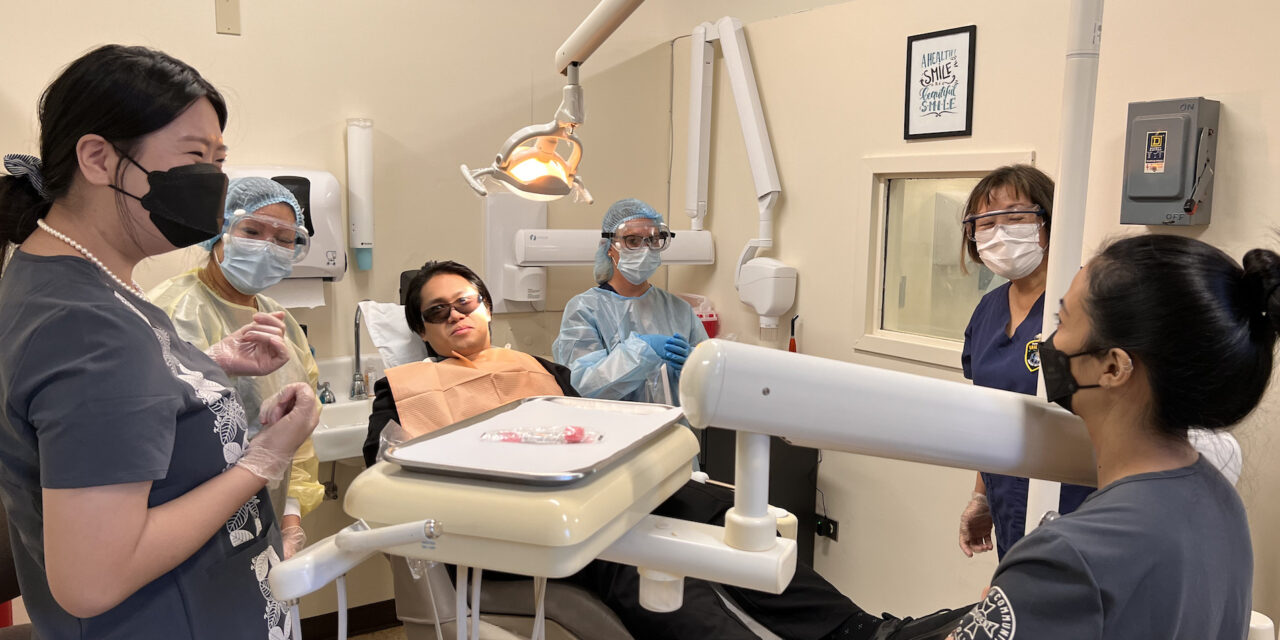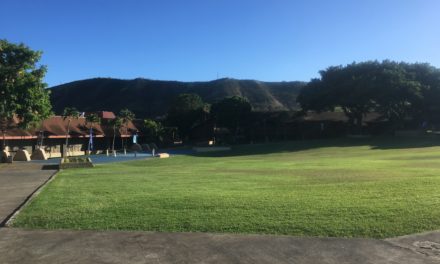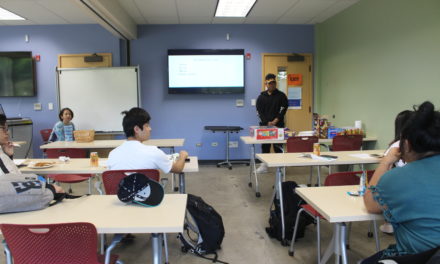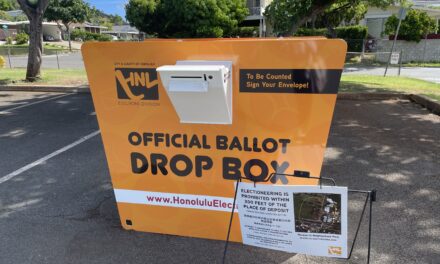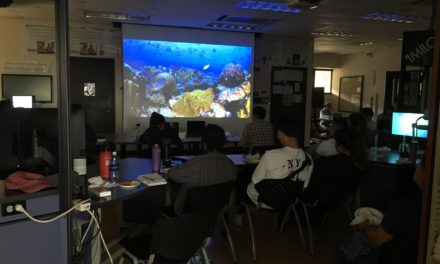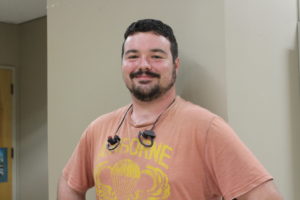Dental assisting students learn necessary terminology and applicable skills to provide highly discounted whitening services and free x-rays to community patients. (Photo courtesy of Mark Nartatez)
By Cameron Enomoto | Staff Writer
Whether you’re looking to get your teeth whitened, free x-rays, or for a quick way to enter the dental industry, the KCC Dental Assisting Program has a solution for you.
The dental assisting program offers teeth whitening for only $60. The whitening gel used is professional grade, meaning that it is the same as what you would see in a dental office. Most dental offices will charge $500 or $600 for whitening services, while the only difference is that you’re being worked on by a student at KCC.

In addition to learning dental terminology and proper use of equipment, students also learn how to do administrative dental assisting, meaning front desk work. They learn about insurance, phone etiquette, and how to deal with patients who are disgruntled. (Photo courtesy of Mark Nartatez)
“The reason we charge less here is that we want the students to get more experience with talking to patients and practicing impressions,” said Mark Nartatez, one of the instructors for the dental assisting program. “We also offer x-ray services free of charge. We will email the patient the photos, and they can send them to a dental office or use it however they need to. KCC students and staff are more than welcome to take advantage of the services we provide.”
The advertisements for whitening services are sent out in the KCC newsletter, though community patients who would like to make an appointment are able to contact Mr. Nartatez by email at marknart@hawaii.edu or call (808) 734-9260. Email is preferred.
For students who are interested in becoming dental assistants, the program is two semesters long and gives students the option of transferring straight into the workforce upon completion. A certificate of competence will be awarded to students who successfully complete the fall semester, and a certificate of achievement will be awarded after the completion of the spring semester.
In order to take the national board dental exam and become certified as a dental assistant, students must complete both semesters. However, the national board exam is optional to take for dental assistants because Hawaiʻi is one of the states that doesn’t recognize a dental assistant that is certified.
For assistants that are certified, it is likely that they will receive a pay increase. The median pay for dental assistants in Hawaiʻi is $18 an hour. Dental assistants with an education and those who are certified can make up to $30 an hour, according to Nartatez.
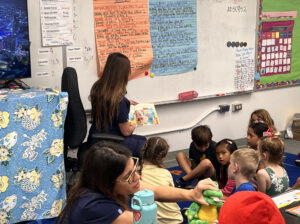
Dental assisting students also do community service at Kainalu Elementary School and teach children how to properly brush their teeth. (Photo courtesy of Mark Nartatez)
“The difference between having an education and being trained on the street is that you would have a lot more experience in terminology and also infection control, which is very important,” said Nartatez. “You also gain the ability to understand oral anatomy.”
The fall semester of dental assisting at KCC covers dental terminology, proper use of dental equipment, and hands-on work. Students will be able to study hands-on dental skills with dental radiology and assist with oral health education.
In the spring, students will be on campus only two days a week. The rest of the time they will go to dental clinics for externships in which they can get hands-on experience working with patients. During this time, students are also going to specialties like oral surgery, orthodontics, and gum specialists.
“I wouldn’t say that it’s an easy program since there’s lots of reading, testing, and practicing,” said Ana Kyriopoulos, a 36-year-old student from Kāneʻohe, Oʻahu. “But so far I’ve had a wonderful time at my externship because I feel like everything Mr. Nartatez taught us, I was able to apply right away.”
Nartatez’s goal for the program is to be seen and to enroll more students. He said that dental assistants are in high demand right now and that it is a great career to consider because dentists depend on their assistants a lot. Additionally, KCC builds a foundation for students that are interested in going to dental school because they are taught the skills they need to be in the dental industry. Nartatez shared that while there are only a handful of students that enroll yearly, he hopes more students apply in the future and encourages people who are unsure to give it a try.
“I want to say that age doesn’t matter if you want to go to dental hygiene school or be a dental assistant since I am 42,” said Mina Owa, a dental assisting student from Hokkaido, Japan. “The people in Hawaiʻi are so nice. If I work here in the future I would like to continue dental work.”
There will be a virtual info session on Monday, March 20 from 2 p.m. to 3 p.m. for students who are interested in joining the dental assisting program. Attendance at an info session is mandatory for all students in health career programs, and students must attend a session within one year of submitting an application.
“I joined the program because I wanted to see if dentistry was something I was interested in and it is,” said Johanna Ignacio, a 20-year-old student from Kalihi, Oʻahu. “I would say just take a chance and see if you like it because you never know.”

